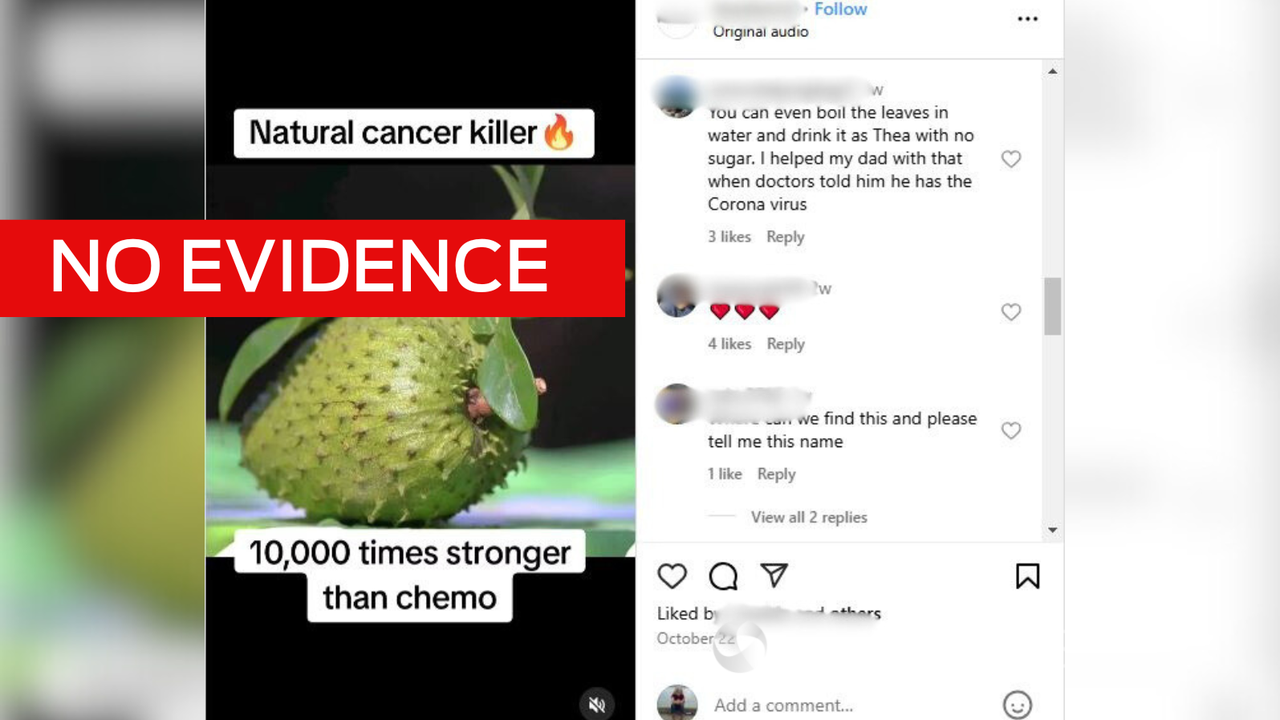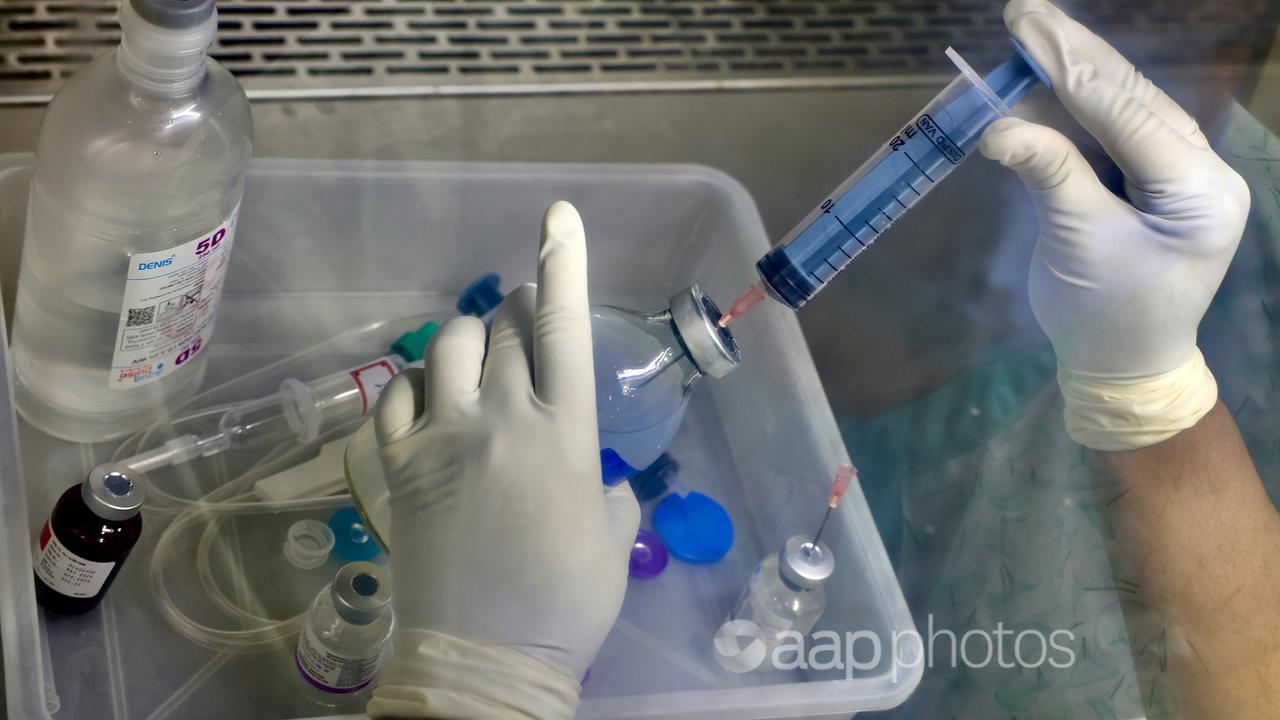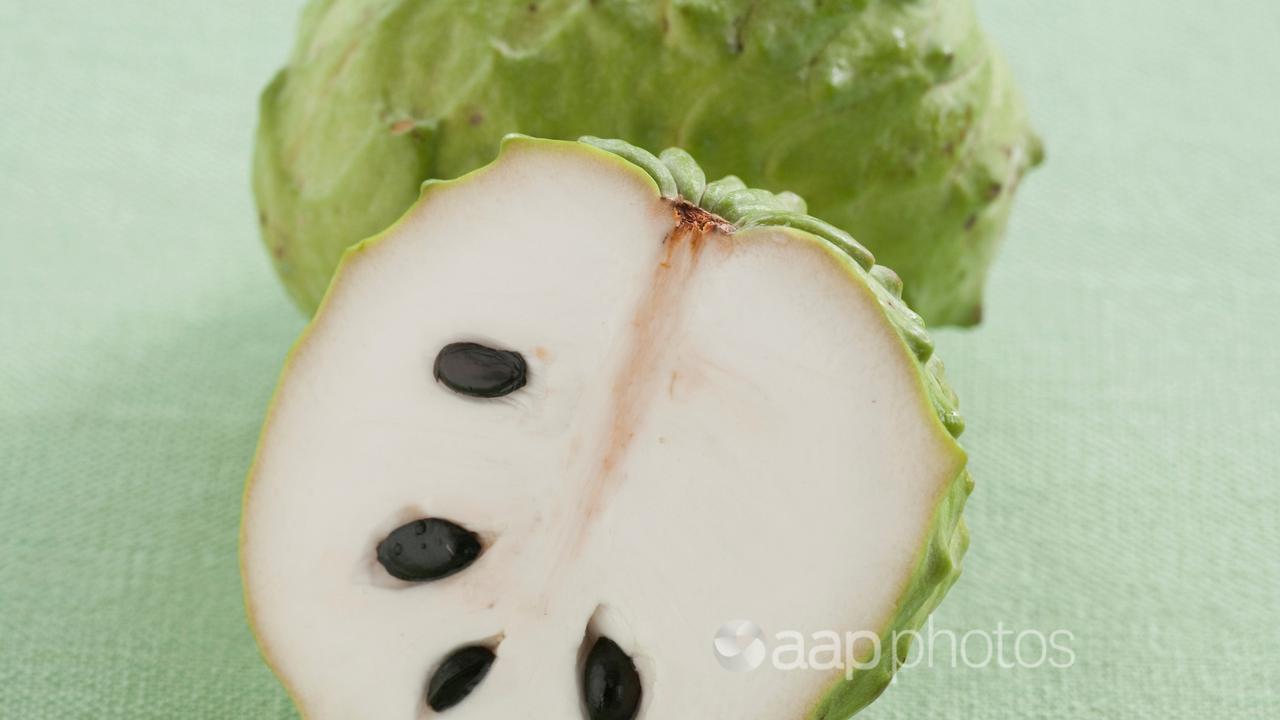AAP FACTCHECK – Claims that a tropical fruit known as soursop is 10,000 times stronger than chemotherapy and can kill human cancer cells are false.
Research on animals and in laboratory settings have indicated soursop has some potential to kill cancer cells, but there have been no clinical studies on humans to prove it is an effective cancer treatment.
AAP FactCheck and experts could find no evidence to support various claims on Instagram and on Facebook spruiking different levels of false and misleading information about the medical benefits of soursop, including that it cures cancer “more quickly and effectively than chemotherapy”.
Many posts repeat the claim the fruit is 10,000 times stronger than chemotherapy.
In particular, the claims are spreading in Pacific Island nations.

One post claims there is a medical establishment cover-up by “some big corporation” to hide the benefits of the fruit.
“The Sour Sop or the fruit from the graviola tree is a miraculous natural cancer cell killer,” the post reads.
“How many people died in vain while this billion-dollar drug maker concealed the secret of the miraculous Graviola tree?”
Soursop, also known as graviola or Annona muricata, is a fruit native to the tropical regions of the Americas and the Caribbean belonging to the custard apple family.
Experts say it is misleading to portray soursop as a proven cancer treatment.
While studies have been conducted that show the fruit’s potential for treating cancer, the research has only been done in laboratories and on animals.

Studies performed on mice and rats show soursop may have potential for the treatment of breast, prostate and colon cancer cells, with researchers in the colon cancer study concluding that “… many questions still need to be addressed in the future exploration of the potential of graviola for therapeutic utility”.
Jennifer Byrne, a cancer research specialist at the University of Sydney, warned results from lab studies on animals do not necessarily equate to the same findings in humans.
“Mice might be able to be dosed at higher levels than humans because humans can more easily describe undesirable side effects,” Professor Byrne said.
“Sometimes the tumours grown in mice (for example, tumours grown under the skin) are also more easily accessed by drugs, compared with tumours growing within internal organs.”
Prof Byrne also explained that cancer cells grown in the laboratory are living in a highly artificial environment: “They’re not being shielded or protected by other cell types,” she said.
“It’s also easy to deliver high drug doses to cells grown in culture dishes … drugs given to patients need to find their own way to the tumour sites in the body.”
Prof Byrne dismissed the suggestion soursop is 10,000 more powerful than chemotherapy.
“Most chemotherapies show some degree of toxicity, which gives rise to undesirable side effects such as hair loss, nausea and vomiting,” she said.
“If soursop were ‘10,000 times stronger than chemo’, it seems likely the fruit would be poisonous and inedible.
“Instead, [it’s] enjoyed by people around the world with no ill effects.”

Megan Varlow, from Cancer Council Australia, also told AAP FactCheck it was wrong to portray soursop as a proven treatment.
She said the council was not aware of any credible scientific evidence to support the claim that soursop was an effective cancer treatment.
She added chemotherapy has been scientifically proven to be effective for humans, following many rigorous studies and trials.
The Cancer Research UK advice is similar, with the British organisation warning that while lab studies have been promising, there have been no such studies in humans.
“We don’t know whether it can work as a cancer treatment or not,” the organisation says. “You could harm your health if you stop your cancer treatment for an unproven treatment.”
Cancer Research UK also warns that while side effects are not well understood, there are concerns graviola could cause nerve changes and movement disorders.
Other health organisations including the Cancer Association of South Africa and the Cleveland Clinic warn more research is needed and that the ability of soursop to fight cancer in humans is not proven.
The Verdict
False – The claim is inaccurate.
AAP FactCheck is an accredited member of the International Fact-Checking Network. To keep up with our latest fact checks, follow us on Facebook, Twitter and Instagram.

















